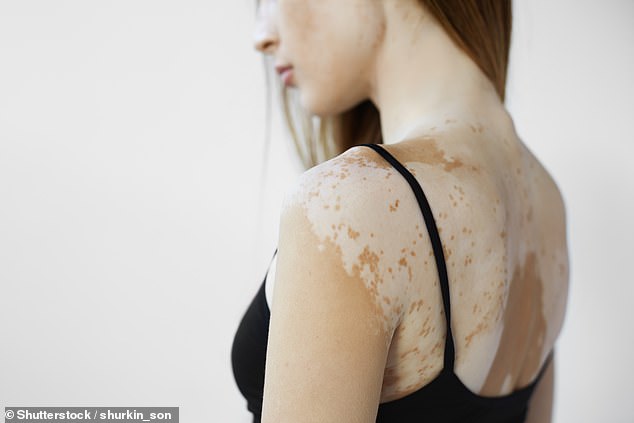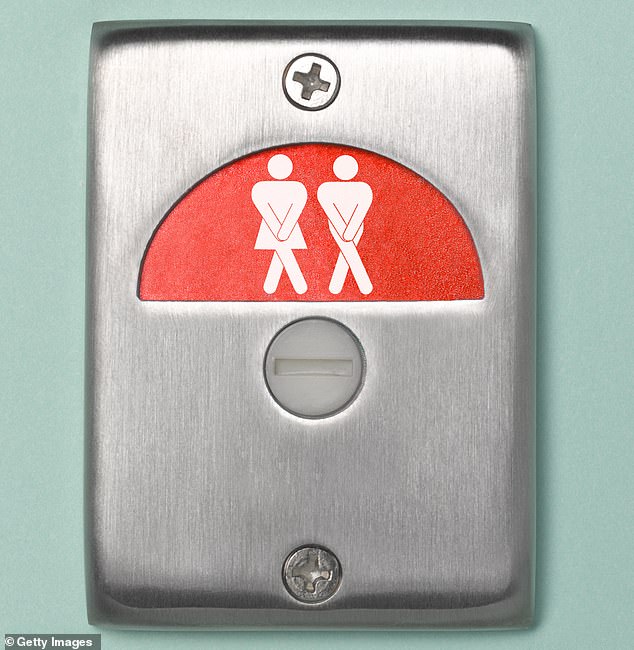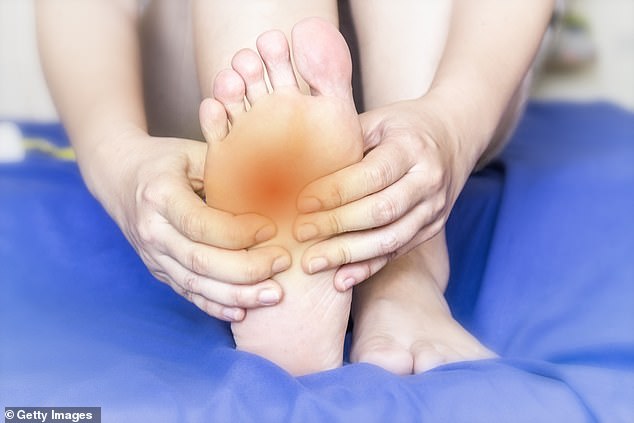Q: During the first wave of the Covid pandemic I suffered an itchy, burning rash from my toes to my knees, and a similar one on both arms. I don’t know if it was Covid because testing wasn’t available at the time. The rash disappeared, but since then my feet have been very hot at night. In the morning I feel like I’ve been knee-deep in boiling water. Is there anything I can do?
Burning sensations can often be caused by neuropathy, when the nerves do not work as they should. Because nerves are responsible for controlling sensations, including the sensation of hot and cold, if they are damaged, a burning sensation can occur.
Burning feet syndrome is a recognized condition and the sensations are usually worse at night. It’s not entirely clear why, but it could be the change in circulation when we go to bed.
It is often limited only to the soles of the feet, but the “burning” can reach as far as the knees. It can also cause the skin to turn red, tingle, and feel painful or heavy.
Burning feet syndrome is a recognized condition and the sensations are usually worse at night.
Nerve damage or neuropathy can be due to an initial infection like Covid, which we know does affect the nerves. But there could be many other causes, including vitamin B12 deficiency, diabetes, spinal arthritis, and even alcohol or medications. It is always worth ruling them out with blood tests, as there may be treatment options.
To evaluate the nerves, a medical exam is needed and then more hospital tests called nerve studies. These tests analyze the electrical activity of the nerves.
Elevating the feet and legs at night is thought to help, as are anti-inflammatory medications such as ibuprofen or prescription naproxen. These can be taken before bedtime.
Certain medications used for nerve pain and neuropathy may also help. For example, medications such as gabapentin or pregabalin taken at night. Using pain relievers to get a good night’s sleep is an important part of coping long-term.
Q: I suffer from vitiligo, with pale white patches on my arms, lower legs and back. They appeared six months ago and despite trying various potions recommended by friends, and also visiting my GP, no one seems to be able to rid me of the problem. Is there a cure?
Vitiligo is a skin condition caused by a lack of the pigment called melanin in the skin. It most commonly affects the mouth and eyes, hands, armpits, groin, genitals, and the inside of the mouth.
These changes are usually symmetrical, with patches on the left side of the body matching the right. If the pigment loss doesn’t match, it may not be vitiligo.
There are other common causes of pigmentless spots on the skin; They may include short-term, non-serious skin rashes, such as pityriasis alba or a skin candidiasis called pityriasis versicolor.
It is vital to get this correct diagnosis from a GP or dermatologist as it determines the treatment and psychological impact of a lifelong, versus temporary, condition.
Vitiligo is most likely an autoimmune condition, in which the immune system attacks the body and prevents it from producing pigment or melanin properly. Sometimes it can be caused by pregnancy or hormones, stress, illness, or even exposure to certain chemicals.

Vitiligo is a skin condition caused by a lack of the pigment called melanin in the skin. It most commonly affects the mouth and eyes, hands, armpits, groin, genitals, and the inside of the mouth.
It is much more likely in someone with a family history or other autoimmune problems, such as rheumatoid arthritis or lupus. The Vitiligo Society (vitiligosociety.org) is an important source of support for anyone newly diagnosed. A GP can initiate treatment, but it is important to refer you to a dermatologist.
Early treatment consists of strict use of sunscreen and application of steroid creams to the patches daily for two months. Specialized treatment includes immunosuppressive creams and phototherapy. Camouflage skin products are also available on the NHS.
Q: Two years ago I started taking statins but suffered from joint pain and palpitations. My GP took them away from me and I have since tried natural alternatives such as plant sterols. My cholesterol is still 7.9, which is high. I am 70 years old, I am not overweight and I do not have diabetes. I would appreciate your thoughts.
Ideally, total cholesterol should be five or less. However, it is also important to look at levels of LDL, a cholesterol component most closely linked to heart disease. These numbers should be given with every cholesterol test.
A total cholesterol of 7.9 would be considered very high and could indicate a genetic cause, such as familial hypercholesterolemia. We would suspect this in anyone with a total cholesterol greater than 7.5 and a family history of heart disease at a young age.
When primary care doctors decide whether we should treat cholesterol, we look at a wide range of factors that determine the risk of heart disease or stroke. Someone with high cholesterol may not need treatment if other factors are not high, so the overall risk is not increased. However, a person over 70 years of age with a total cholesterol of 7.9 is likely to be at high risk and need treatment.
A cholesterol of 7.9 is unlikely to respond to measures such as plant sterol supplements, which have only a modest effect at best.
But statins are not the only option. There are other medications, called ezetimibe and bempedoic acid, that are taken in tablet form. There is also a new injection, called inclisiran, but in many areas of the NHS it is reserved for people who have already had a heart attack.
Public bathrooms are a necessity, so why are there so few of them?
Along with death and taxes, the need to go to the bathroom is a certainty of life, and it occurs much more frequently as we age. That’s why it baffles me that public bathrooms are becoming increasingly scarce.
Conditions that mean we have to go more often or find it harder to endure affect millions of people. I often hear from patients who say their lives are limited by the fear of not being able to find a bathroom while they are away from home.

Dr. Ellie often hears from patients who say their lives are limited by the fear of not being able to find a bathroom while they are away from home.
I guess the authorities are counting on the fact that there is always a cafe or supermarket that people can walk into, but as we all know, that is not the case.
I find the situation exasperating. I almost feel like telling people to flock to use the bathroom at the city hall offices. I would like to know your experiences. Have you been affected by the lack of public services? Please write to me at the email address below and let me know.
Write to Dr Ellie: DrEllie@mailonsunday.co.uk


